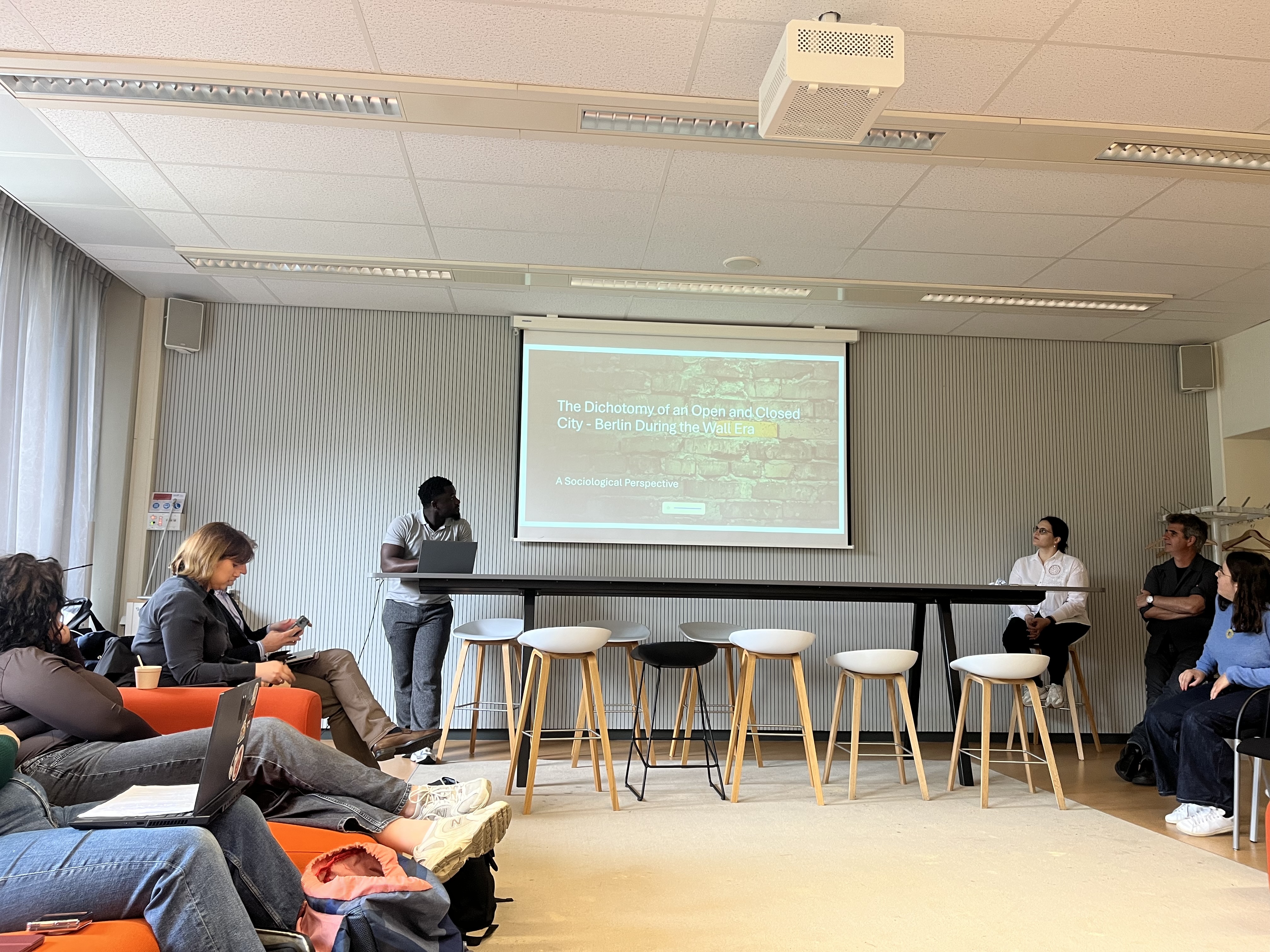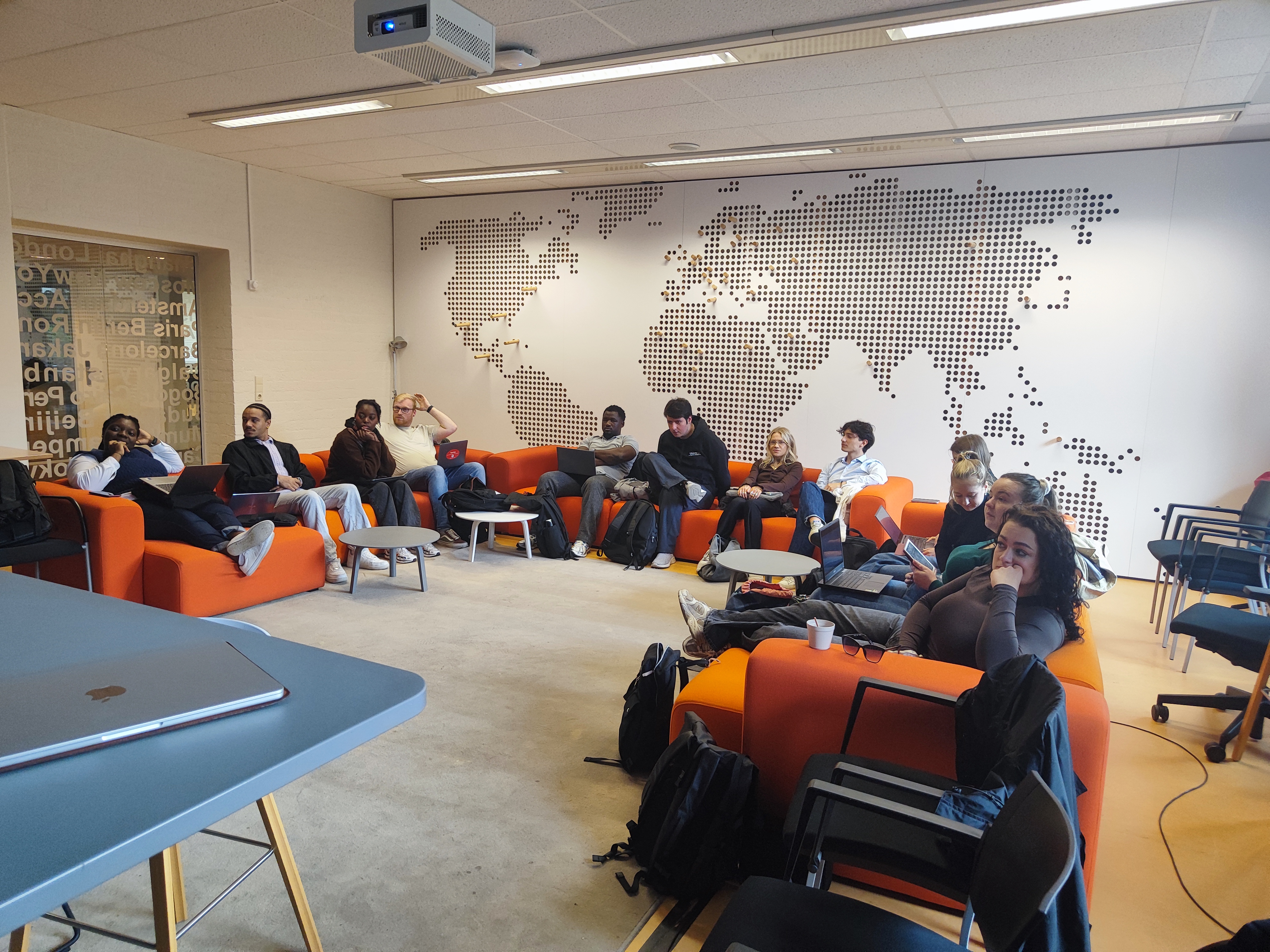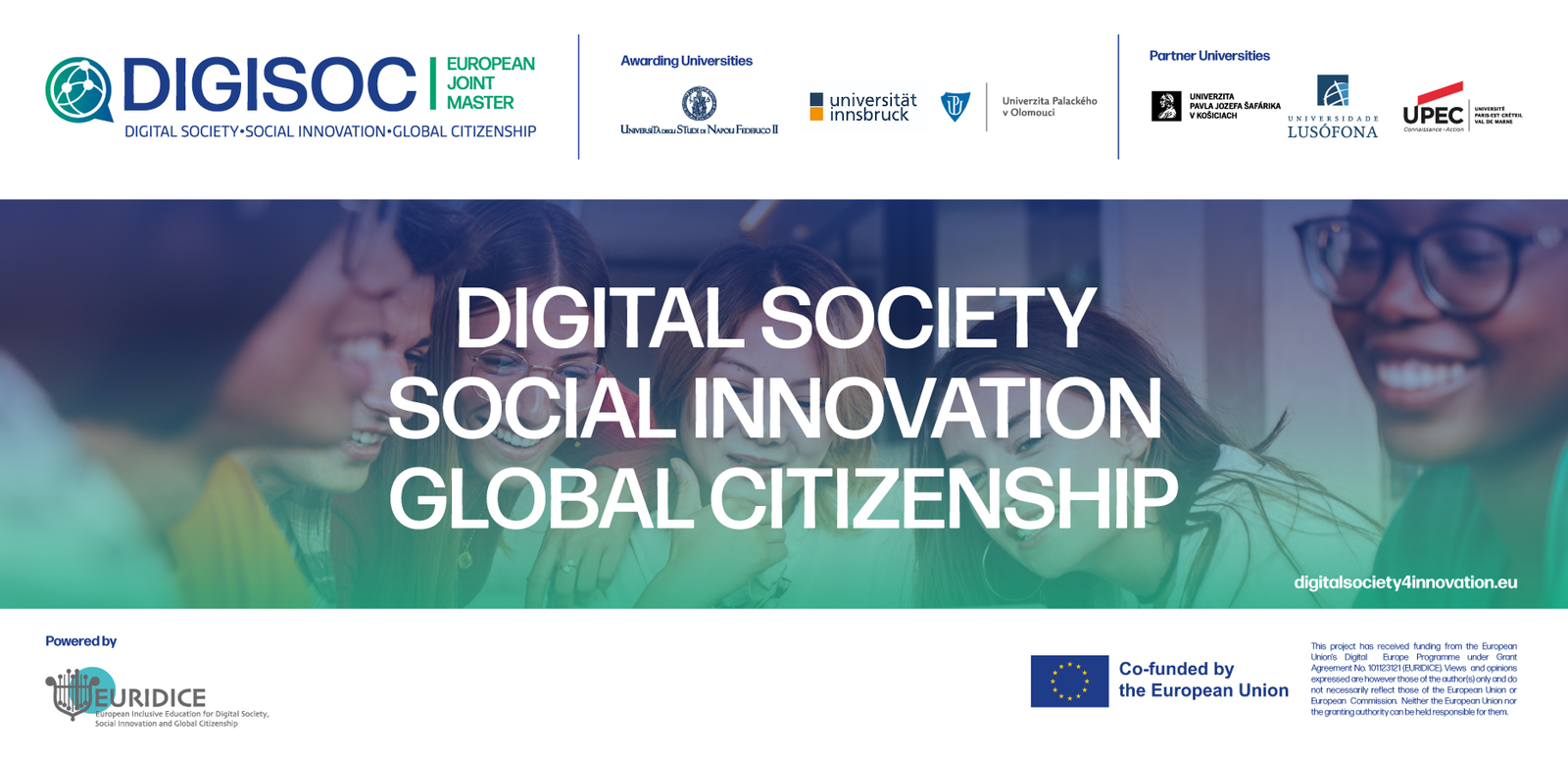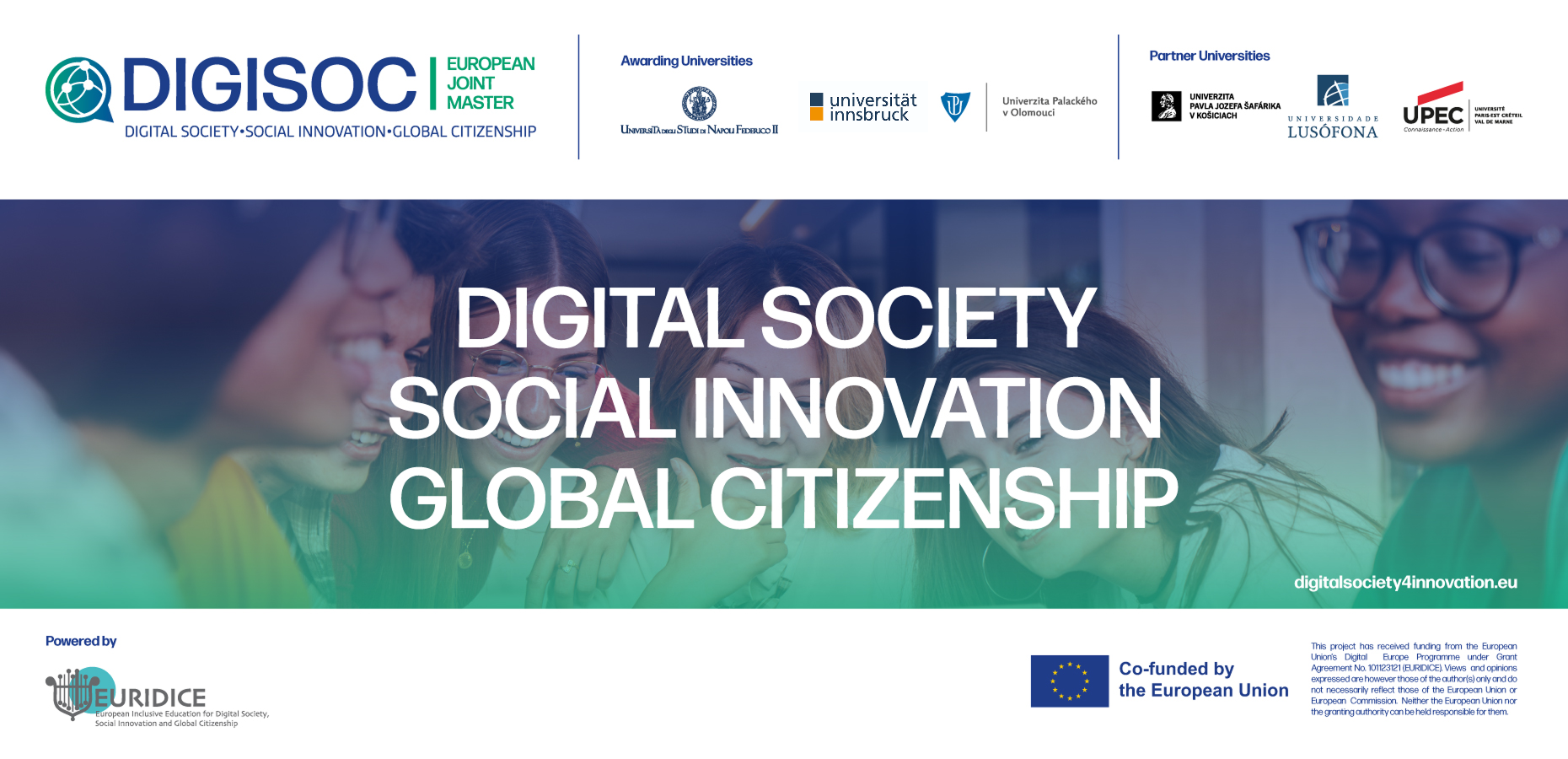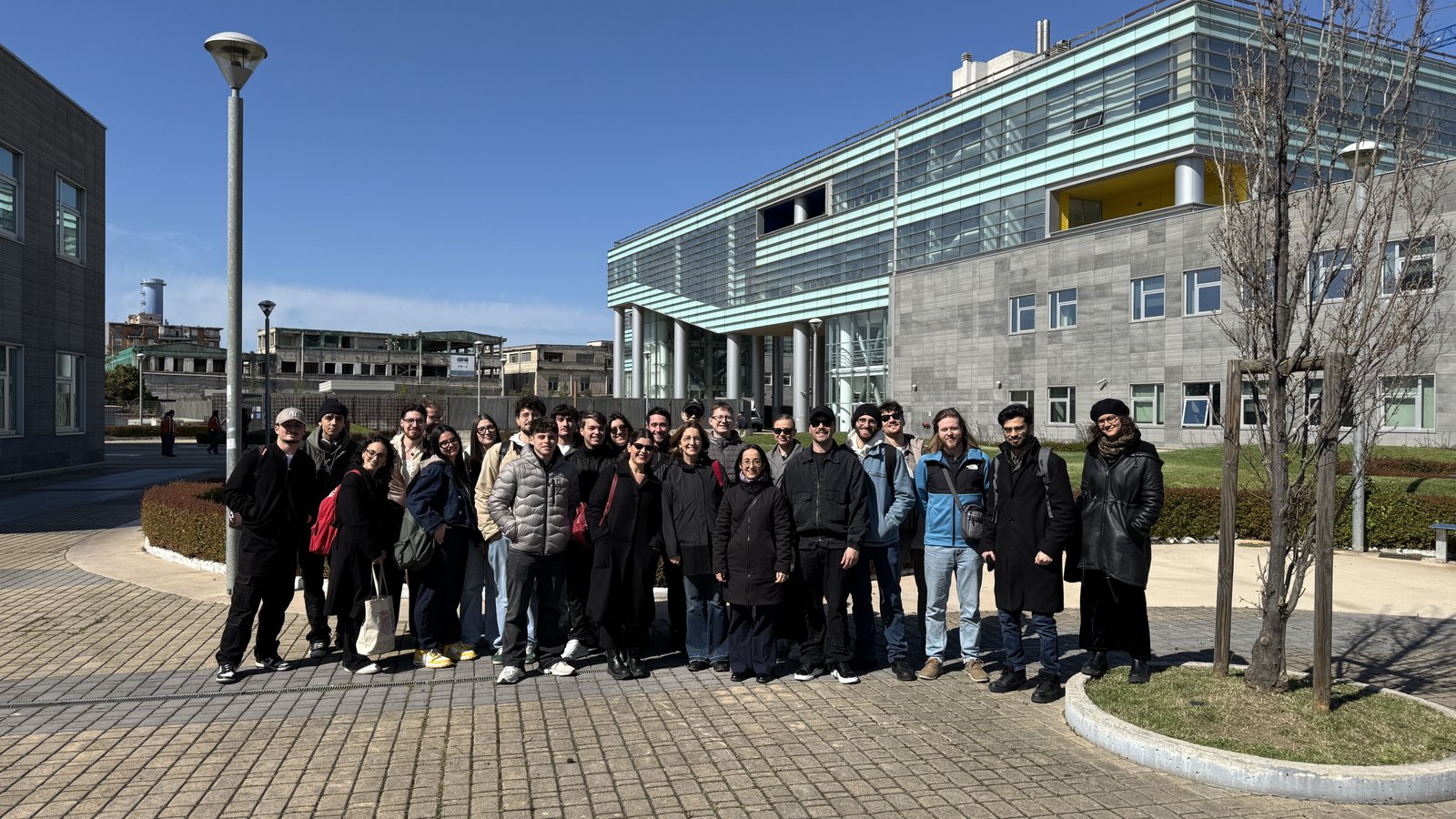Aurora Students Gather in Reykjavík for the 2026 Student Conference
Hosted by the University of Iceland (UI) in Reykjavík, the Aurora Student Conference 2026 marked the first in-person student event of the year. Over the course of three days from 12 to 14 January 2026, the conference brought together students from across Europe for an immersive experience focused on cultural exchange and collaborative learning.
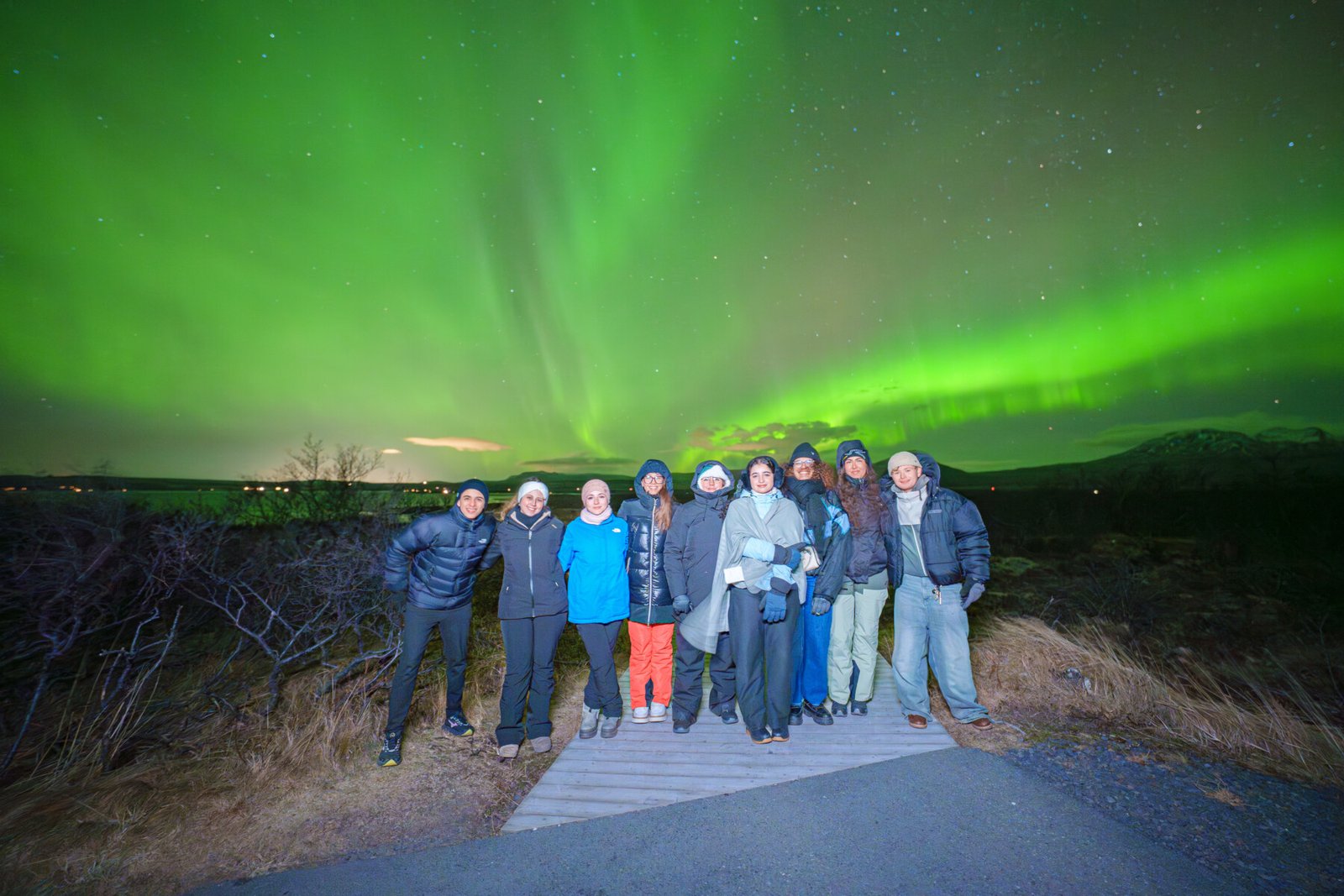 Students from Aurora universities were fortunate to experience the northern lights (aurora borealis)
Students from Aurora universities were fortunate to experience the northern lights (aurora borealis)
Open to members of the Aurora Student Council and Aurora Student Ambassadors, the conference aimed to strengthen intercultural exchange and cooperation within the Aurora network. The programme combined workshops on intercultural communication, public speaking and student engagement with informal activities designed to foster connection, including city tours, karaoke and peer-learning discussions.
The conference opened with the Aurora Student Council (ASC) meeting, during which ASC members discussed key topics such as the Student Rights Charter, the Code of Conduct and future student-led initiatives. The day concluded with an informal welcome aperitif at the university, offering participants the opportunity to connect in a relaxed setting.
Connecting Students Across Europe
On day two of the conference, participants were officially welcomed by the Institutional Coordinator and the Rector of the University of Iceland. The day continued with an open session addressing topics such as future communication strategies within Aurora, followed by an intercultural communication workshop. In the evening, students explored Reykjavík through a city tour led by local students and guides.
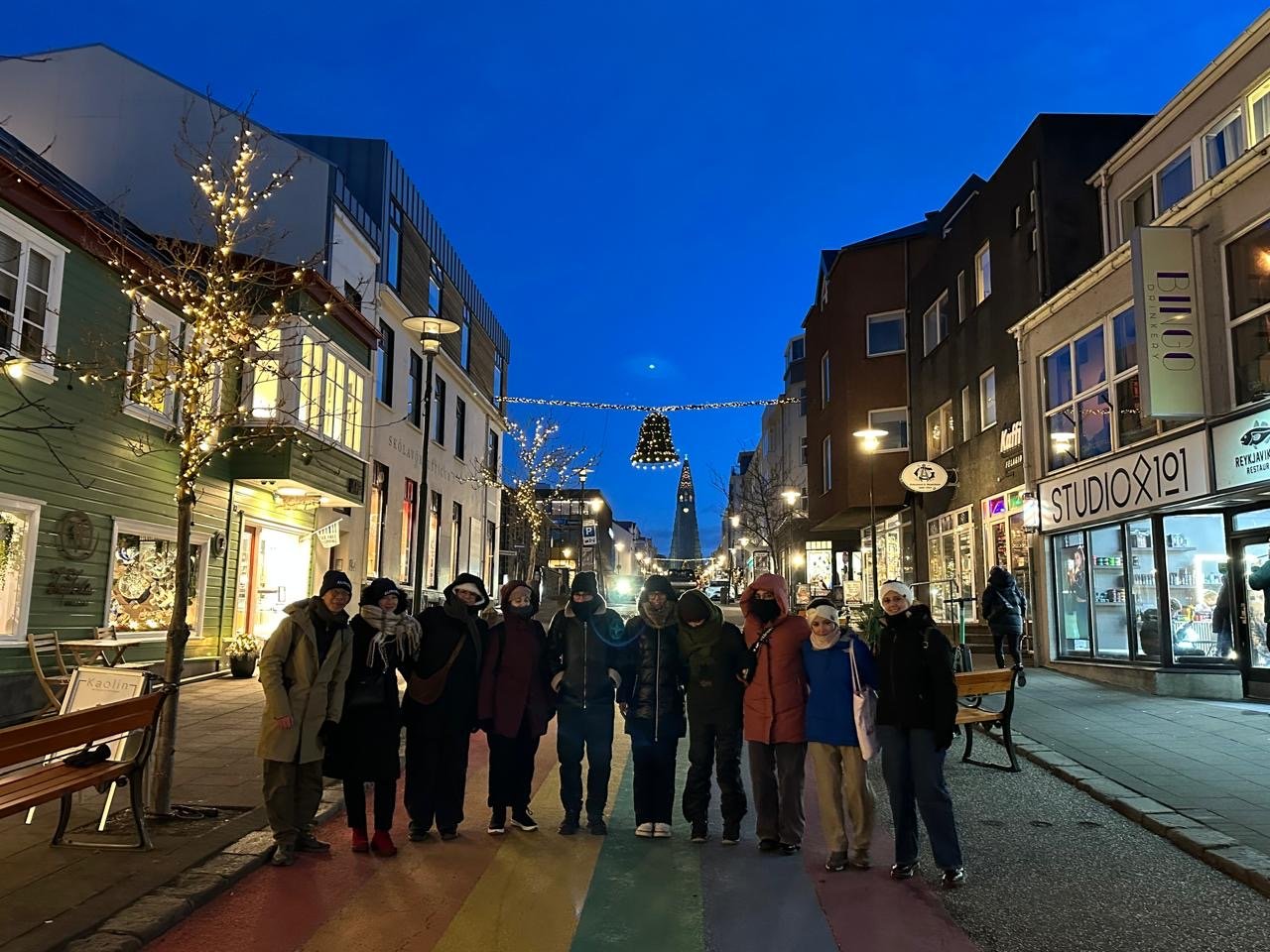
Reykjavík city tour with local students and guides
Day three focused on active participation and exchange. The programme included a student community engagement workshop, which highlighted the diversity of Aurora universities and their national contexts, as well as peer-to-peer learning and public speaking workshops. The conference concluded with a cultural exchange moment: students shared traditional food from their home countries, creating a vibrant space for informal dialogue and mutual discovery.
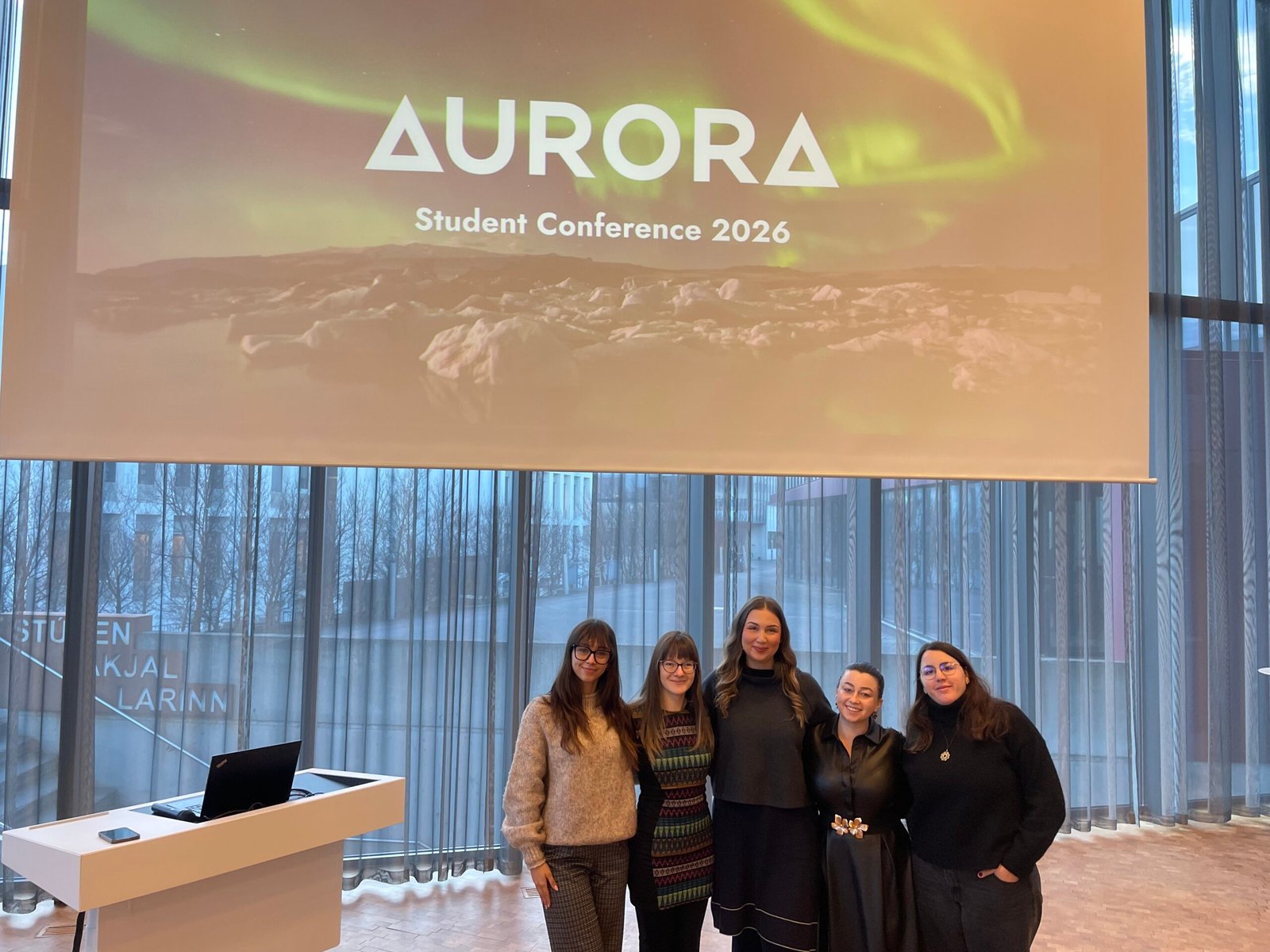
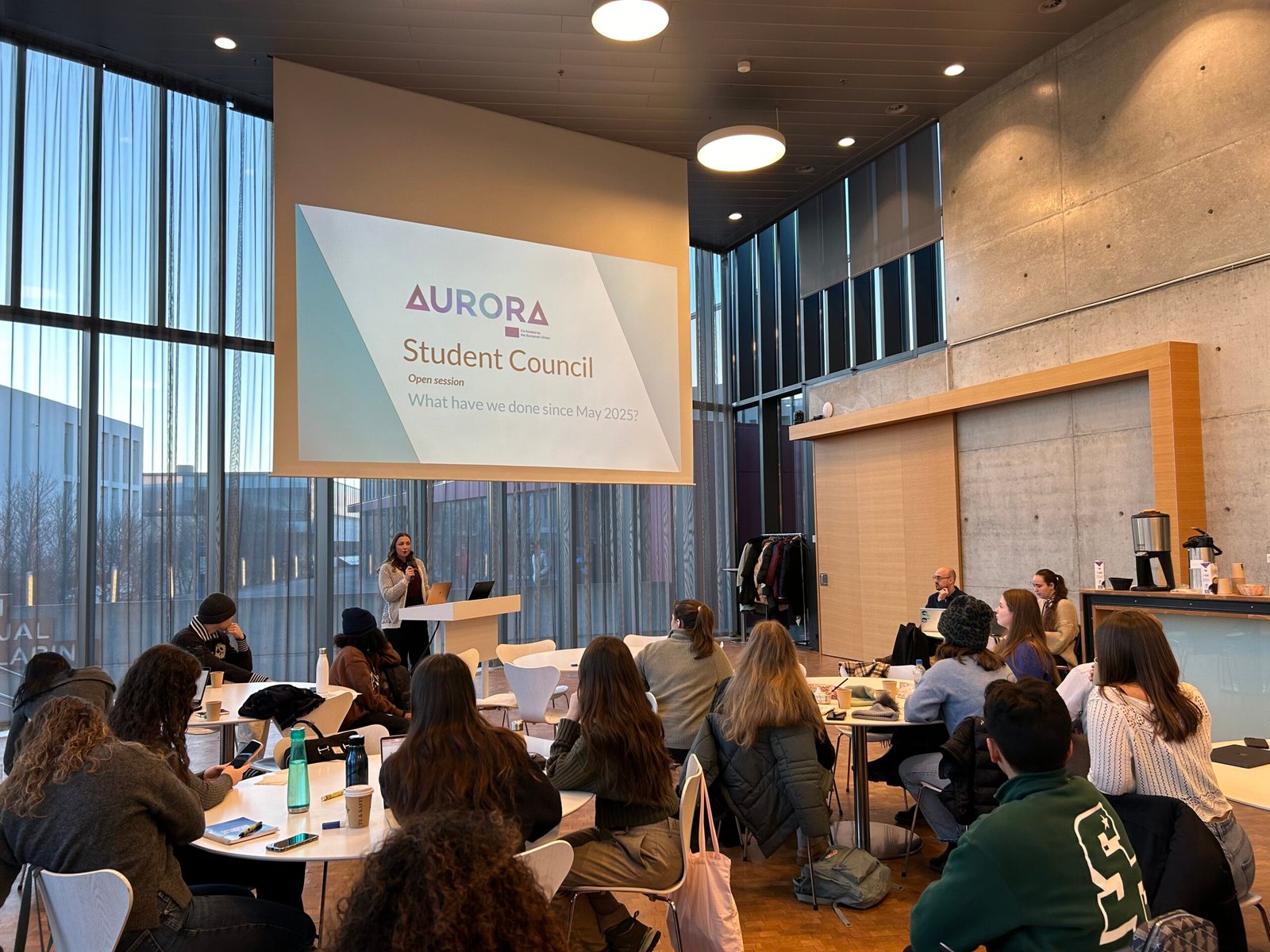
Aurora Student Council Board members present achievements of the student community in the last year
Overall, the Aurora Student Conference 2026 proved to be an intense and enriching experience, fostering open-mindedness, dialogue and collaboration among Aurora students, and further strengthening the sense of community within the alliance.
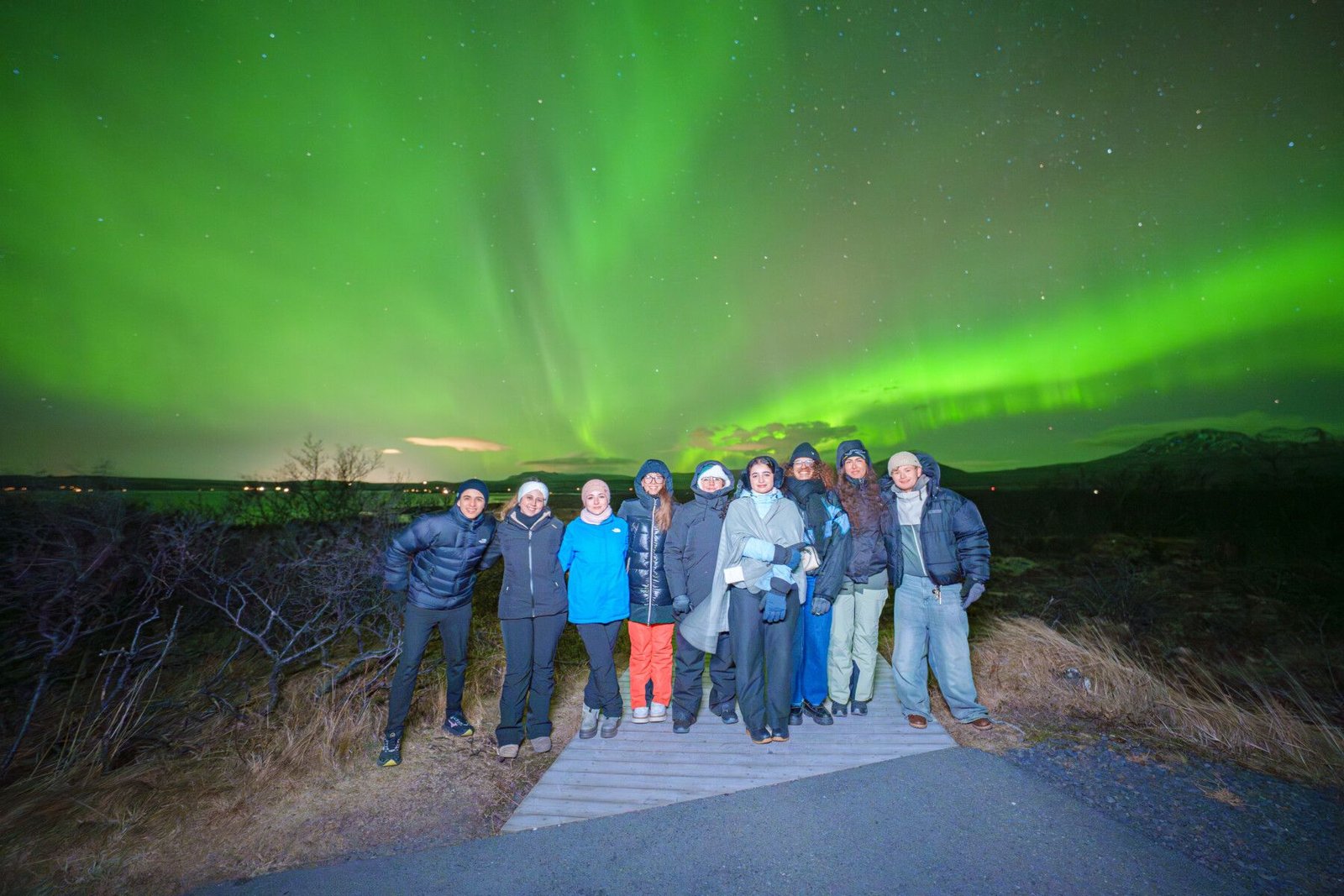
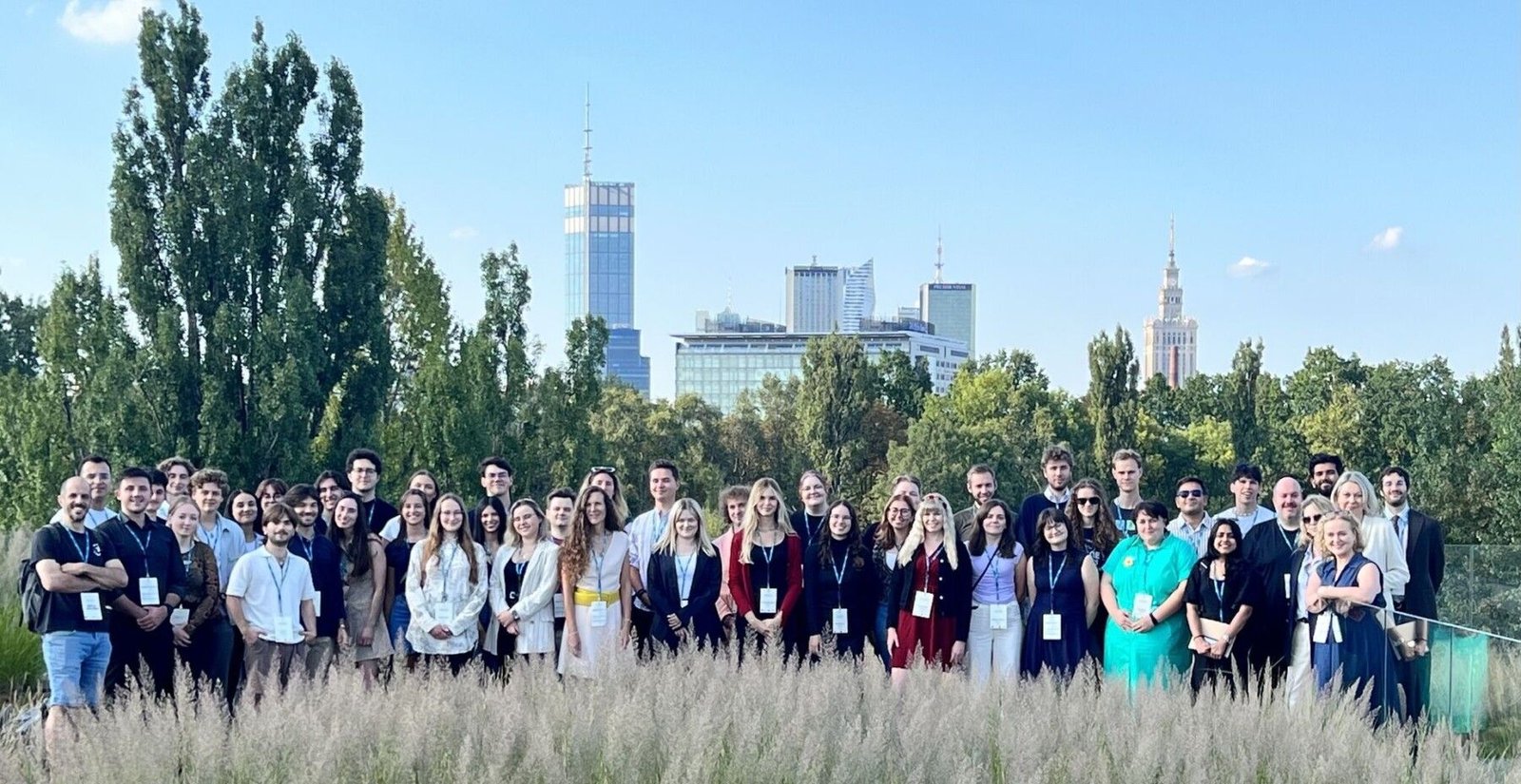
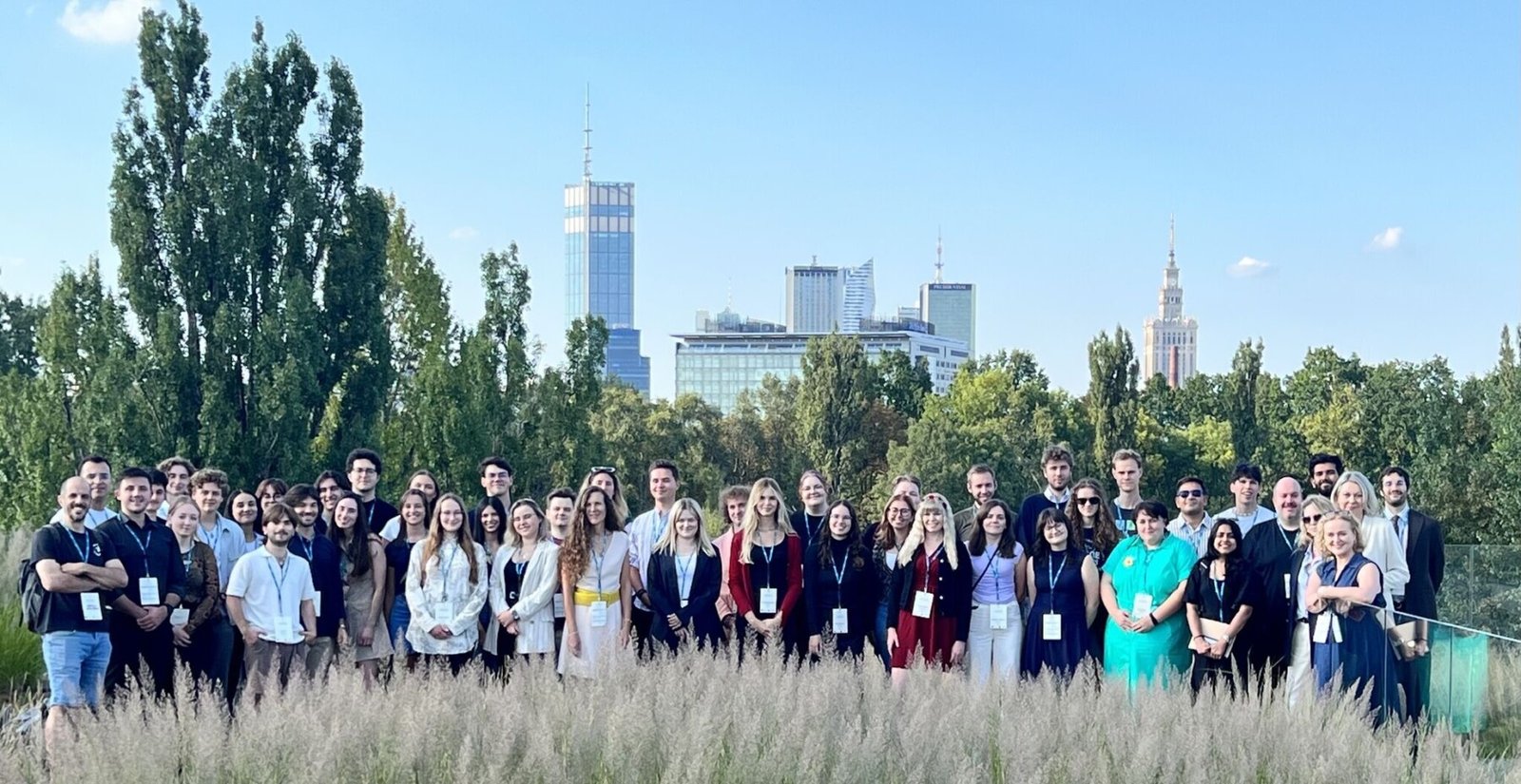




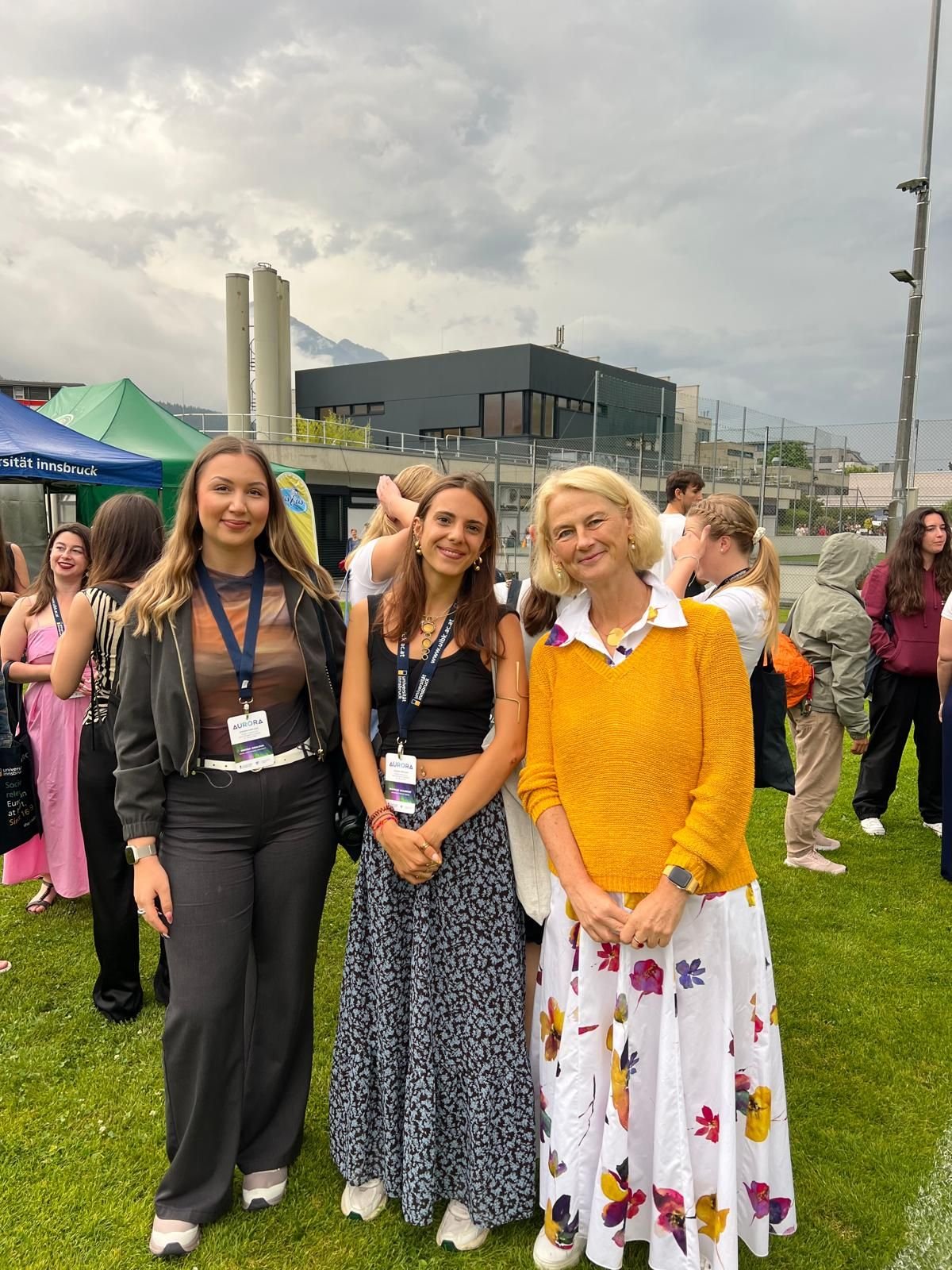

 Eliška Karasová (MA student at
Eliška Karasová (MA student at 


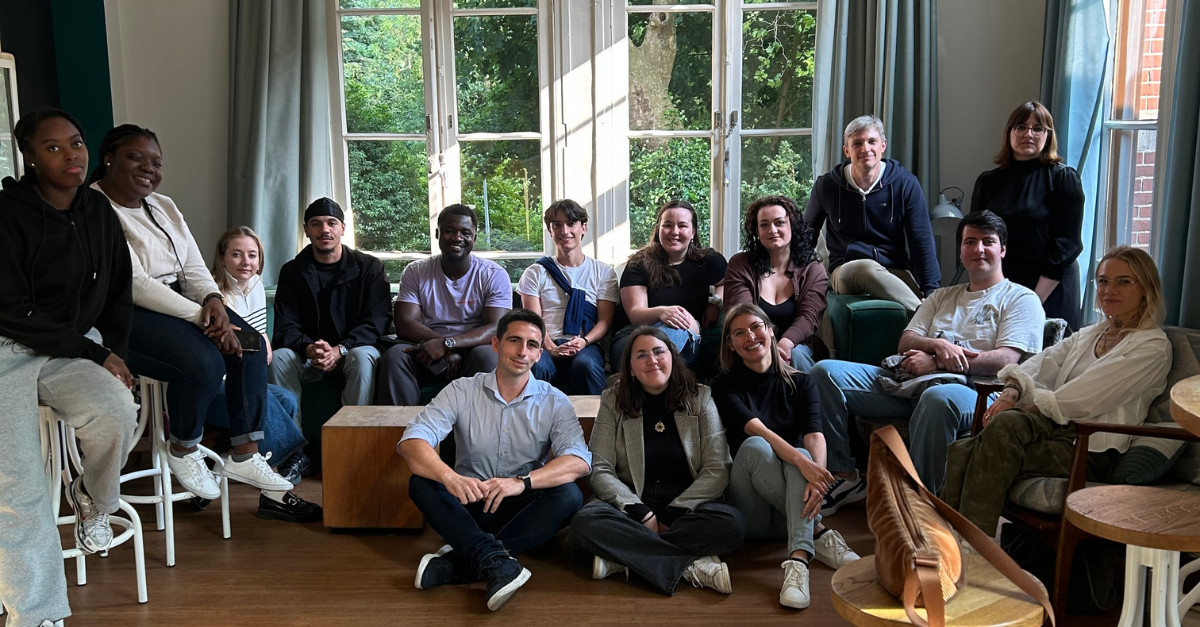
 Instructors, staff and students in the Challenges in Europe course at Vrije Universiteit Amsterdam
Instructors, staff and students in the Challenges in Europe course at Vrije Universiteit Amsterdam